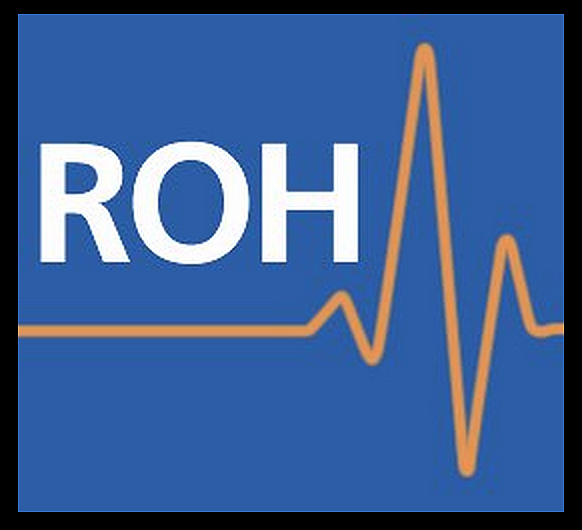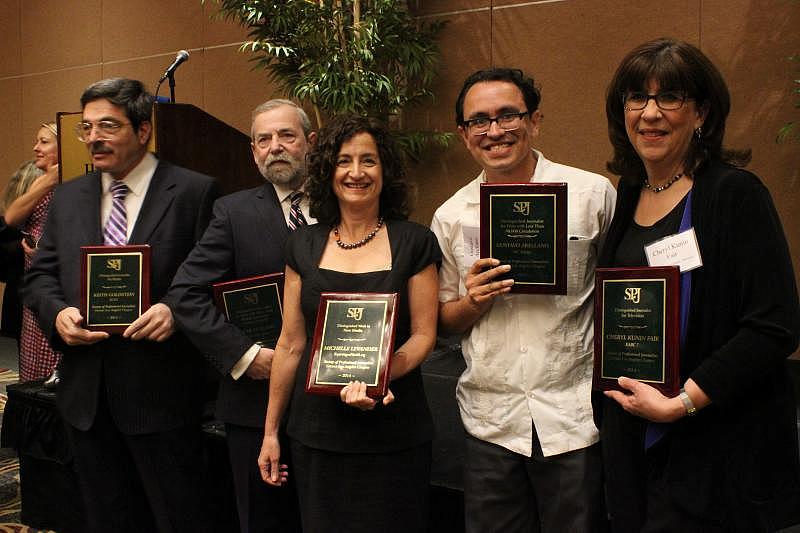It takes a community — Reflections on what makes Reporting on Health unique

March 19, the Los Angeles Chapter of the Society of Professional Journalists celebrated its distinguished journalists of the year.
We were honored to have received a nod from SPJ for Reporting on Health, especially in such distinguished company as Jacques Clafin, overnight editor at City News Service; Gustavo Arellano, editor of OC Weekly; Keith Goldstein, news director at KCSN; Cheryl Kunin Fair, vice president and news director at KABC; and Mona Shafer Edwards, the longtime courtroom sketch artist.
If we could, we would have invited a crowd to join us at the USC Annenberg banquet table – the members of an online community that gains its strength from its many individual voices.
When we first launched Reporting on Health in 2009 we were intent on keeping this health journalism site as what technologists used to call a “walled garden.” A closed little world, its gatekeepers only allow entry to approved members. In our mind that meant most of our most interesting content would be behind a firewall and that only verified journalists could post on the site.
Luckily, Lisa Stone, a founder of BlogHer, served as an early program adviser. It’s no coincidence that no one is bandying about the “walled garden” as a business strategy these days, but Stone was instrumental in helping us see, early on, the value of spurring conversations on Reporting on Health across disciplines. Another wise voice over the years has been Mary Lou Fulton, a pioneering journalist when it comes to building online communities. We now work with her in her role as senior program manager at The California Endowment, which generously supports Reporting on Health.
Fast forward to today and you can see that anyone with a valuable perspective on health and journalism can become a member of Reporting on Health and contribute to our conversations – as long as he or she isn't seeking to use the site for personal advertising or promotion and abides by our code of conduct.

The site and its readers benefit from the investigative reporting ideas and lively commentary of our longtime contributing editor, William Heisel; from the nuanced insights on children’s health and wellbeing by our content editor, Ryan White, as well as the deconstruction of health reform by guest bloggers including Judy Silber, Dr. Jan Gurley, and Kelly Schmitt. Albert Sabaté, our community editor, helps keep things cooking.
We also actively solicit and promote writings by doctors, social workers and nurses, policy makers and non-profit leaders. Members of two interdisciplinary teams at Children’s Hospital Los Angeles write for Reporting on Health, including Nancy Chang, a lead clinical research nurse. Writing during the super-heated climate created by the recent measles outbreak, Erika Franklin Fowler, who heads the Wesleyan Media Project, said on Reporting on Health that “media coverage of political conflict over the measles vaccine may not just affect the small anti-vaccination community, who are unlikely to change their minds on the subject anyway. It could have broader effects on public attitudes and beliefs.” Her position in that recent post might rankle many journalists. And so could the writing of Marice Ashe, CEO of the non-profit, ChangeLab Solutions, who challenged how the media characterized McDonald’s free toy giveaways in a still popular post from last year. But it’s good to have our assumptions challenged by someone coming from a different discipline.
And, of course, we hear from many journalists who turn to Reporting on Health to share their observations on important trends in health and health journalism, such as Beth Kelly’s recent post on the how the Internet of things is transforming health care.
We’ll been thinking of all of you tomorrow night and having a toast in your honor.

